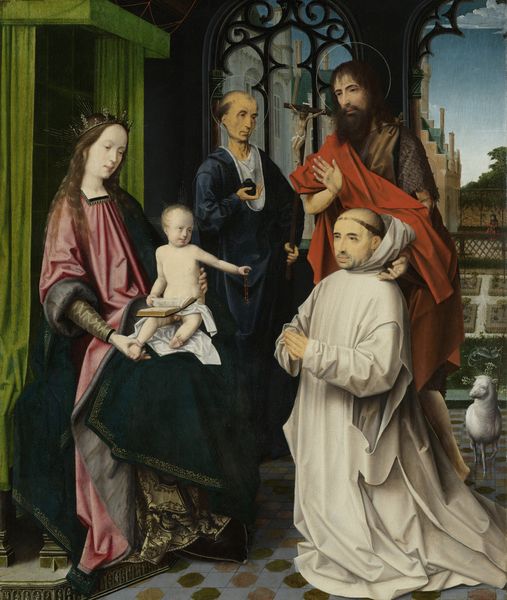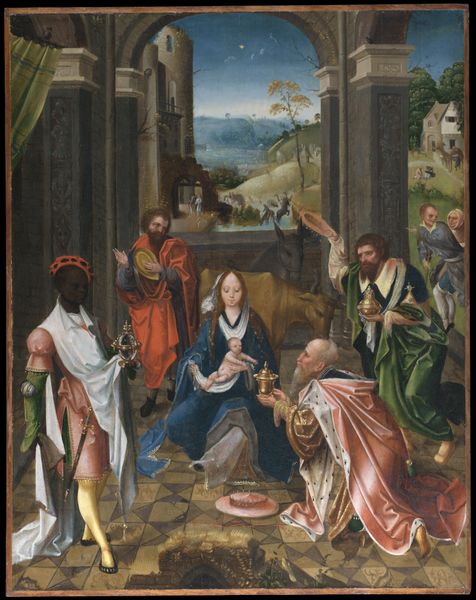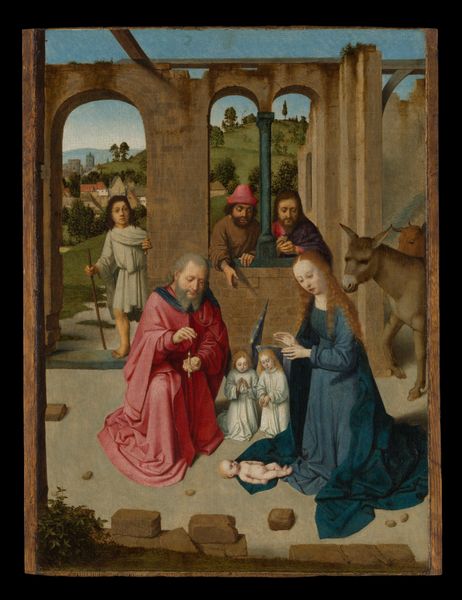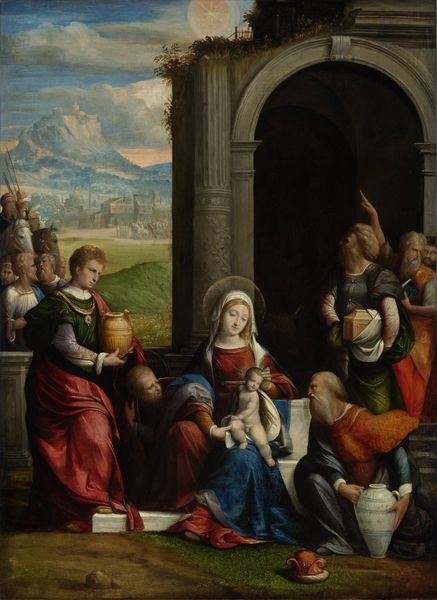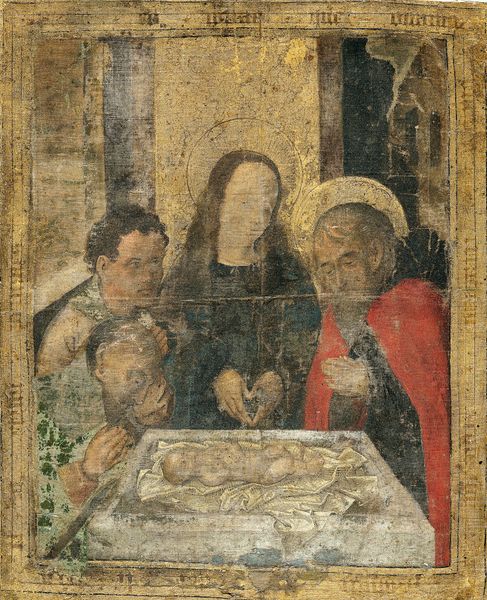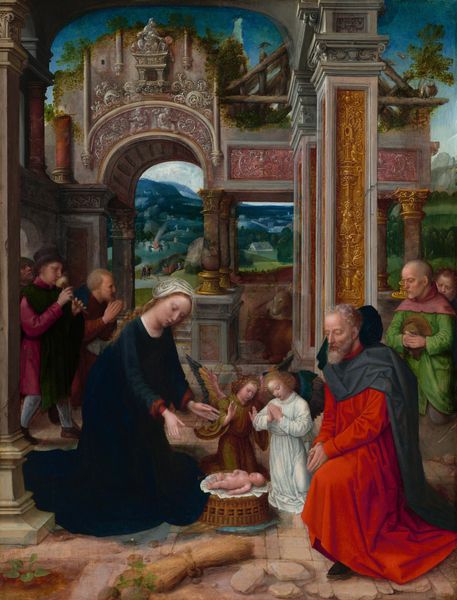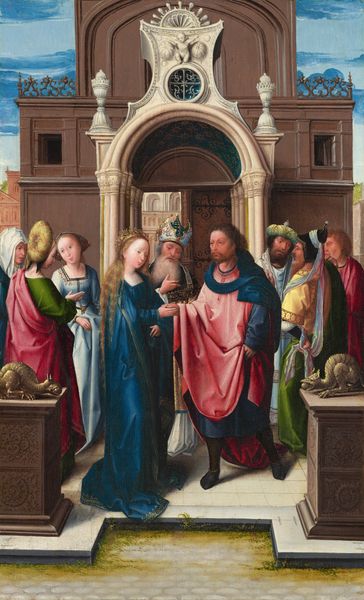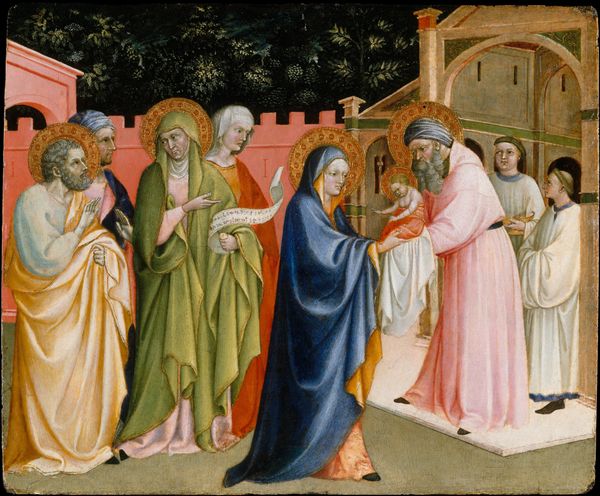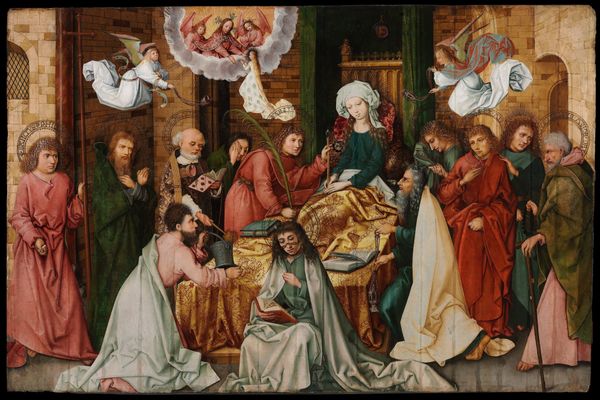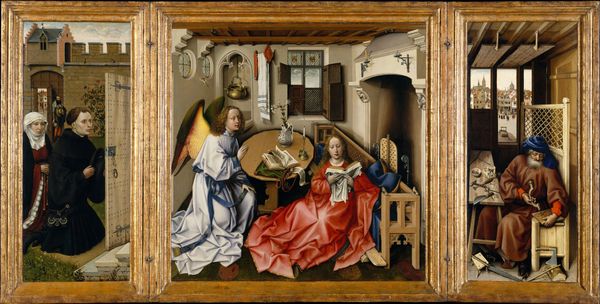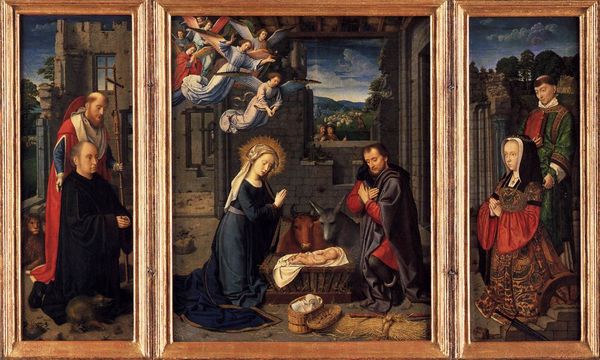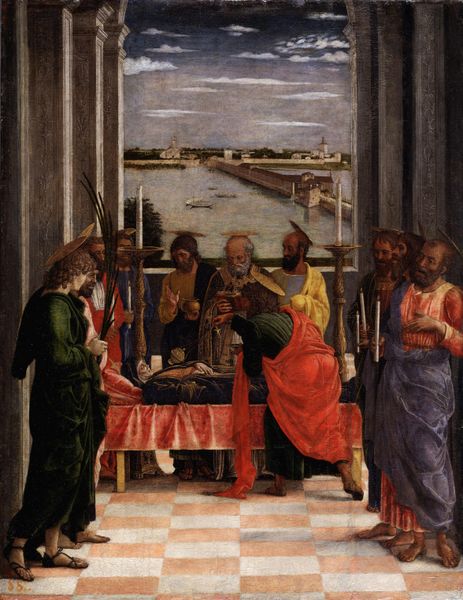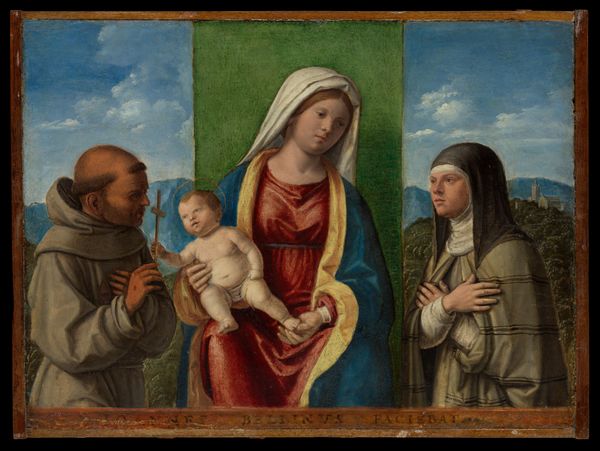
painting, oil-paint
#
portrait
#
narrative-art
#
painting
#
oil-paint
#
oil painting
#
men
#
italian-renaissance
#
christ
Dimensions: 8 1/4 x 6 1/4 in. (21 x 15.9 cm)
Copyright: Public Domain
Editor: This is Juan de Flandes' "The Marriage Feast at Cana," painted in oil sometime between 1492 and 1502. There's such an intimate feeling despite the architectural grandeur. I’m curious, how do you interpret this work within its historical context? Curator: Flandes was working at a fascinating intersection of cultures. Commissioned for Isabella the First of Castile, this panel reflects the complexities of Spanish identity at the close of the Reconquista. Do you notice anything specific about the racialized representations in the painting? Who gets to be the main players here? Editor: I see primarily lighter skin tones around the table. There’s a person in the back by a pillar, peeking in…but it’s still a light-skinned person. Curator: Exactly. Who is centered and who is othered is crucial here. Consider the historical backdrop: the expulsion of Jews and Muslims from Spain, and the rise of a specifically *Christian* Spanish identity. This isn't just a depiction of a biblical story. Editor: So, by focusing on the figures in this way, Flandes could be making a statement about religious and even cultural dominance at the time? Curator: Precisely. It uses a Biblical scene to quietly assert power. Consider how contemporary works of art use religious or historical narratives to comment on current socio-political climates. What can we learn about ourselves through their art, and who gets a seat at that table, literally and figuratively? Editor: That really reframes my perspective on the piece. I hadn’t thought about it as engaging in the politics of identity at all, just a straightforward bible scene. Curator: And that’s why it's so important to analyze art with an awareness of its complex histories, who painted them, who they painted for, and what ideologies are being normalized in the work. Editor: I’ll definitely keep that in mind moving forward!
Comments
No comments
Be the first to comment and join the conversation on the ultimate creative platform.
